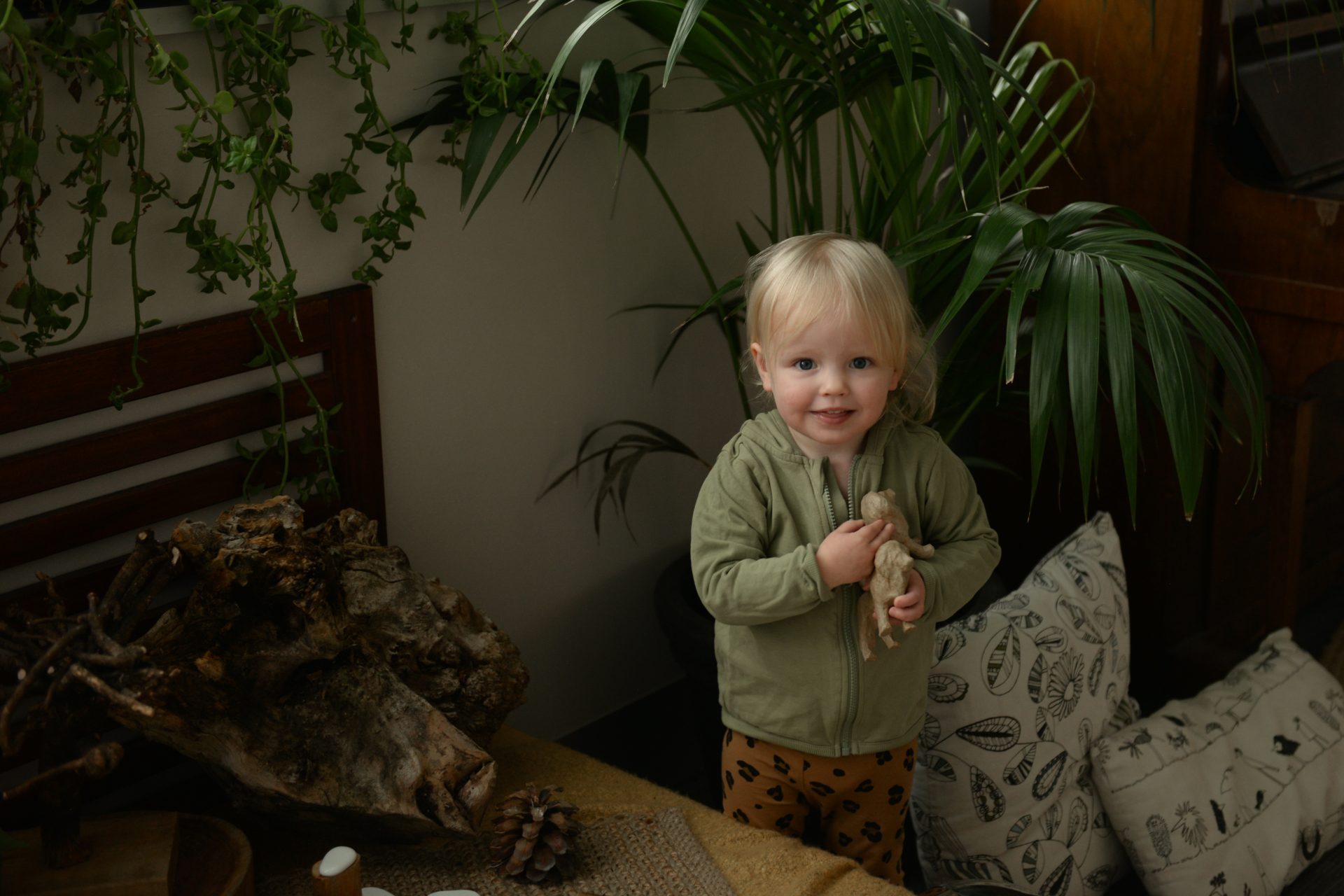
While early childhood education is dedicated to creating the foundations of academic learning, this certainly isn’t the sole focus. The Reggio Emilia concept considers the child as a whole – and that means areas such as emotional development, emotional intelligence, physical and mental well-being, social skills and encouraging natural curiosity.
Humans are a complex, dynamic system – so nurturing the whole of this during the formative early years creates the basis from which the adult of the future can build.
Fostering the Ultimate Early Childhood Development
The earliest years of a child’s life are where change is occurring faster than at any other time of life. Not only are they growing in physical size, but the brain is creating thousands upon thousands of connections.
It’s a time when valuable life skills begin to be formed, such as communication, dexterity, mindfulness and more.
The Reggio Emilia concept recognises the equal importance of these non-academic elements – indeed, such skills directly impact how a child approaches learning opportunities later in life. Rather than thinking of social-emotional development and well-being in isolation, they are better considered as components that play an equally important role in childhood development.
With this in mind, we can break down how a positive approach to individual subjects can influence the early learning years.
- Communication: How we interact with the world around us has a profound impact on life. We tend to think of communication as being all about verbal skills, but understanding non-verbal signals is also vital. Reggio Emilia encourages healthy interactions, with children being encouraged to explore many different ways of presenting their thoughts and emotions. Of course, interacting by talking with their peers plays a major role, but great communication can also be more subtle. Creativity, art, stories, songs… These are all ways that we learn to impart what we’re feeling to the outside world. That’s one pivotal reason that Emilia Reggio environments are tailor-designed to stimulate creativity.
- Empathy: There are many ways to help build this crucial life skill. The Reggio Emilia concept encourages open conversations that are child-led. From discussing why characters might have behaved in a story to creating a farmyard world that considers the feelings of each animal, or perhaps a mutual classroom project that factors in everyone’s thoughts and feelings, a healthy group environment helps create connections that promote understanding the emotions of others.
- Mindfulness: Both mental and physical health stem from how mindful a person is. The value of stopping for a moment of introspection is something that’s, thankfully, now far better understood. Learning the importance of this at a young age can lead to a lifetime of taking a few vital time-out minutes per day. That’s why such quiet time, contemplation and mindfulness activities are part and parcel of a Reggio Emilia day.
- Conflict resolution: There will always be disagreements among groups of children. However, the approach to such conflict is what makes a difference and helps young minds develop the strategies they need to a) recognise conflict and b) how to deal with it. By providing a safe, open environment where anything can be discussed and all questions asked, the skill of peaceful resolution is learned naturally.
- Problem-solving: Working through challenges is something that’s interwoven into so many activities. From the toddler learning that a solid container is needed to hold water to the older child working out how to build the highest tower from bricks, crucial critical thinking is nurtured, providing a wonderful base from which they can grow their skills.
While these examples are by no means exhaustive, it gives an idea of how a creative, all-inclusive, child-led Reggio Emilia environment stimulates whole-person discovery and learning. No one skill is more important than another, with proficiency in one area spilling over to academic, social, emotional, all-round happiness and well-being.
Evoke Early Learning Centres are inspired by the acclaimed Reggio Emilia method. From our values and philosophy to our hand-selected, highly-trained staff and parental involvement, we’re committed to creating the ideal environment for the most precious member/s of your family.
Contact us today for more information.

Tracey is a highly qualified educator and administrator and brings a strong combination of academic achievement, extensive work experience in the education and business sectors as well as drive and passion to her role as General Manager of Operations at Evoke Early Learning.
Tracey has a Master of Education and an Advanced Diploma of Business and holds VIT Dual Registration to teach in Early Childhood and Primary School settings. She’s also a VIT Trained Mentor Teacher and has worked in ECEC settings as a Director, Educational Leader and as a Victorian Senior Area manager. Her recognition as a state finalist in the recent Director of the Year Awards is testament to her achievements in the early education sector.
Her extensive work experience also included a stint as Head of Curriculum at the Royal Children’s Hospital Education Institute and positions as head of ICT at a number of large primary and secondary schools. Tracey is also experienced in not-for-profit sessional kindergarten settings and long daycare environments, so she has a deep understanding of what’s required to support the needs and expectations of young children, educators, parents and caregivers.
Tracey is responsible for operational management at Evoke Early Learning’s Clayton centre in Oakleigh East and their Albert Park centre in South Melbourne and is deeply committed to leading and driving effective and sustainable service delivery throughout the company.
Tracey is passionate about making a meaningful difference to young children, their parents and the wider community and under her expert guidance, Evoke Early Learning is continuing to raise the bar in quality early education and childcare.


